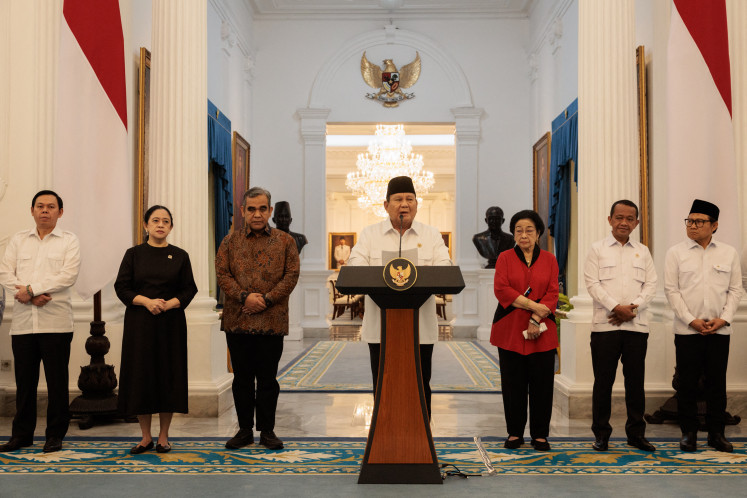Popular Reads
Top Results
Can't find what you're looking for?
View all search resultsPopular Reads
Top Results
Can't find what you're looking for?
View all search resultsEmpowering people, developing nations
Around 2.5 million women of reproductive-age (3.6 percent) are still using unreliable traditional methods.
Change text size
Gift Premium Articles
to Anyone
W
omen from Sabang to Merauke are able to access contraceptives more easily these days, compared to women in the seventies, when Indonesia started introducing the Family Planning program. The country has been committed to helping couples to plan their families by providing a choice of contraceptives.
The Family Planning program has had a beneficial impact on individuals, families and the nation. Families have fewer children, maternal and child health continues to improve, school participation and women’s participation in paid labor have increased, gender equality has been fostered and population growth has stabilized.
Couples have for the most part been able to exercise their rights to plan the size of the family and to space and time their pregnancies. The national development progress we’ve seen today is closely linked to Indonesia’s strong resolve in implementing Family Planning program since the 1970s.
What we have witnessed is the realization of the principles of the 1994 Cairo International Conference on Population and Development that brought a paradigm shift away from population control towards people-centered development through human rights, including reproductive health and rights; principles that are key to the attainment of the Sustainable Development Goals in 2030.
On July 11, policymakers, donors and Family Planning (FP) advocates around the world gathered in London to discuss efforts to attain Family Planning 2020 goals of 120 million additional contraceptive users by the year 2020. This meeting coincided with the commemoration of the 2017 World Population Day whose theme was Family Planning: Empowering People, Developing Nations.
Family Planning is about empowering couples and individuals to actively exercise their rights to family planning by making informed decisions, and accessing quality rights-based Family Planning services, supplies and information, tailored to their needs. There are two elements to emphasize here.
First, the users: couples or individuals. For the users to be able to exercise their rights and develop behavior that protects their health and wellbeing, they need to be empowered with sound rights awareness, including young people’s rights, the rights to health, including sexual and reproductive health; and how, when, and where to access contraceptive services and information. And second, the services: the quality, accessibility, availability and affordability of Family Planning services and supplies that are rights-based and equitable.


















